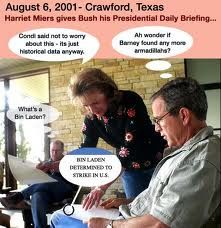Boron Group
Aluminium occurs widely on earth, and indeed is the third most abundant element in the Earth’s crust (8.3%).
Goldman Sachs’s Aluminum Pile
By THE EDITORIAL BOARD, The New York Times
Published: July 26, 2013
Unlike investors in the past that bought up the commodities they were trying to control, Goldman is not buying the world’s aluminum. Rather, it is storing the metal for other banks, traders and aluminum producers in a complex of warehouses outside Detroit that it acquired in 2010. The problem, as described in The Times by David Kocieniewski, is that since the bank entered this business, the time it takes buyers to get the metal from those warehouses has shot up to more than 16 months, from 6 weeks. Goldman has attributed the delays to a shortage of trucks and forklift drivers. But Goldman also pays incentives to owners of the metal to keep it in the bank’s warehouses.
Those delays have bolstered Goldman’s profits, because the bank earns more rent the longer metal stays in its warehouses. However, companies that use aluminum argue that the delays hurt them by making them wait for deliveries and can also raise the spot price of aluminum because that price is calculated by a formula that includes a premium based on storage costs. An official at MillerCoors told a Senate committee that the difficulty in getting metal supplies had cost it and other companies $3 billion last year.
…
Banks and their supporters say they should be in the commodity business because it is closely related to their trading activities. But that is also a cause for concern because banks might be able to take unfair advantage of their access to important information in the physical market to benefit themselves when they trade commodities in financial markets.
Policy makers must thoroughly investigate the aluminum warehousing strategies to determine whether Goldman and other warehouse operators distorted prices. They should also take a fresh look at whether banks should really be in the business of owning warehouses and other physical infrastructure. Bankers like to emphasize the benefits of such activities, but their involvement also entails risks for the market.
A Shuffle of Aluminum, but to Banks, Pure Gold
By DAVID KOCIENIEWSKI, The New York Times
Published: July 20, 2013
The story of how this works begins in 27 industrial warehouses in the Detroit area where a Goldman subsidiary stores customers’ aluminum. Each day, a fleet of trucks shuffles 1,500-pound bars of the metal among the warehouses. Two or three times a day, sometimes more, the drivers make the same circuits. They load in one warehouse. They unload in another. And then they do it again.
…
Using special exemptions granted by the Federal Reserve Bank and relaxed regulations approved by Congress, the banks have bought huge swaths of infrastructure used to store commodities and deliver them to consumers – from pipelines and refineries in Oklahoma, Louisiana and Texas; to fleets of more than 100 double-hulled oil tankers at sea around the globe; to companies that control operations at major ports like Oakland, Calif., and Seattle.
…
For much of the last century, Congress tried to keep a wall between banking and commerce. Banks were forbidden from owning nonfinancial businesses (and vice versa) to minimize the risks they take and, ultimately, to protect depositors. Congress strengthened those regulations in the 1950s, but by the 1980s, a wave of deregulation began to build and banks have in some cases been transformed into merchants, according to Saule T. Omarova, a law professor at the University of North Carolina and expert in regulation of financial institutions. Goldman and other firms won regulatory approval to buy companies that traded in oil and other commodities. Other restrictions were weakened or eliminated during the 1990s, when some banks were allowed to expand into storing and transporting commodities.
…
Next Up: Copper
As Goldman has benefited from its wildly lucrative foray into the aluminum market, JPMorgan has been moving ahead with plans to establish its own profit center involving an even more crucial metal: copper, an industrial commodity that is so widely used in homes, electronics, cars and other products that many economists track it as a barometer for the global economy.
…
JPMorgan, which also controls metal warehouses, began seeking approval of a plan that would ultimately allow it, Goldman Sachs and BlackRock, a large money management firm, to buy 80 percent of the copper available on the market on behalf of investors and hold it in warehouses. The firms have told regulators that these stockpiles, which would be used to back new copper exchange-traded funds, would not affect copper prices. But manufacturers and copper wholesalers warned that the arrangement would squeeze the market and send prices soaring. They asked the S.E.C. to reject the proposal.
…
After an intensive lobbying campaign by the banks, Mary L. Schapiro, the S.E.C.’s chairwoman, approved the new copper funds last December, during her final days in office. S.E.C. officials said they believed the funds would track the price of copper, not propel it, and concurred with the firms’ contention – disputed by some economists – that reducing the amount of copper on the market would not drive up prices.
Others now fear that Wall Street banks will repeat or revise the tactics that have run up prices in the aluminum market. Such an outcome, they caution, would ripple through the economy. Consumers would end up paying more for goods as varied as home plumbing equipment, autos, cellphones and flat-screen televisions.




